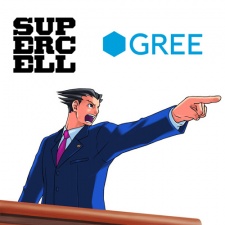Patents have long been a contentious - and expensive - issue for technology companies.
Gaming has generally avoided the worst excesses of such litigation, however.
Yet the ongoing lawsuits between Gree and Supercell over a range of patents related to mobile games and free-to-play monetisation seem to be building into an increasingly acrimonious situation.
Lose one, win two
The Japanese outfit first sued Supercell domestically back in 2018 but that case was dismissed by the Tokyo District Court.
Gree didn’t back down, instead expanding its action to the US.
This has culminated in the current set of three cases covering up to 15 US patents, which is going through the court system in Texas.
Neither Gree or Supercell have offices in Texas, of course. It just happens to be a US state court with experience of dealing with patent cases.
The cases (and any damages awarded) relate solely to the value of Supercell’s business operations in the US.
The first case - completed in September 2020 - saw Gree winning damages of $8.5 million.
The second case has proven more significant, with Gree being awarded $92 million by the jury.
Supercell has appealed both cases and has an automatic right for them to be considered by a higher authority, the Court of Appeals for the Federal Circuit.
Gree could have sued any number of mobile games companies, presumably choosing Supercell as being the most profitable target.
Both cases are now awaiting post-trial motions. The US court system has suffered from delays due to Covid over the past 12 months and it seems unlikely anything will come of these appeals until 2022.
There’s also the final case of the initial three to be heard, due 2 August 2021.
Winners and losers
Of course, what’s most interesting about these lawsuits isn’t the result or even money Gree may or may not win from Supercell, it’s why it sued Supercell in the first place.
Gree could have sued any number of mobile games companies, presumably choosing Supercell as being the most profitable target; also one having little experience of lawsuits, nor a US entity.
No doubt, the situation would have been harder to prosecute against a large US entity such as Zynga or Activision, boasting home advantage as well as its own department of legal eagles
Similarly, for Supercell, while it might now view Gree as a failed gaming outfit, little better than a patent troll, it can afford to pay the fines, despite its likely moral misgivings at being taken for a patsy.
But that isn’t to say this is a victimless crime.
Reputations matter and while Gree’s business now wholly focused on its domestic market, in picking a fight with one of the most loved global gaming companies, it may discover it loses more in the court of public opinion than it gains financially from the US legal system.





















